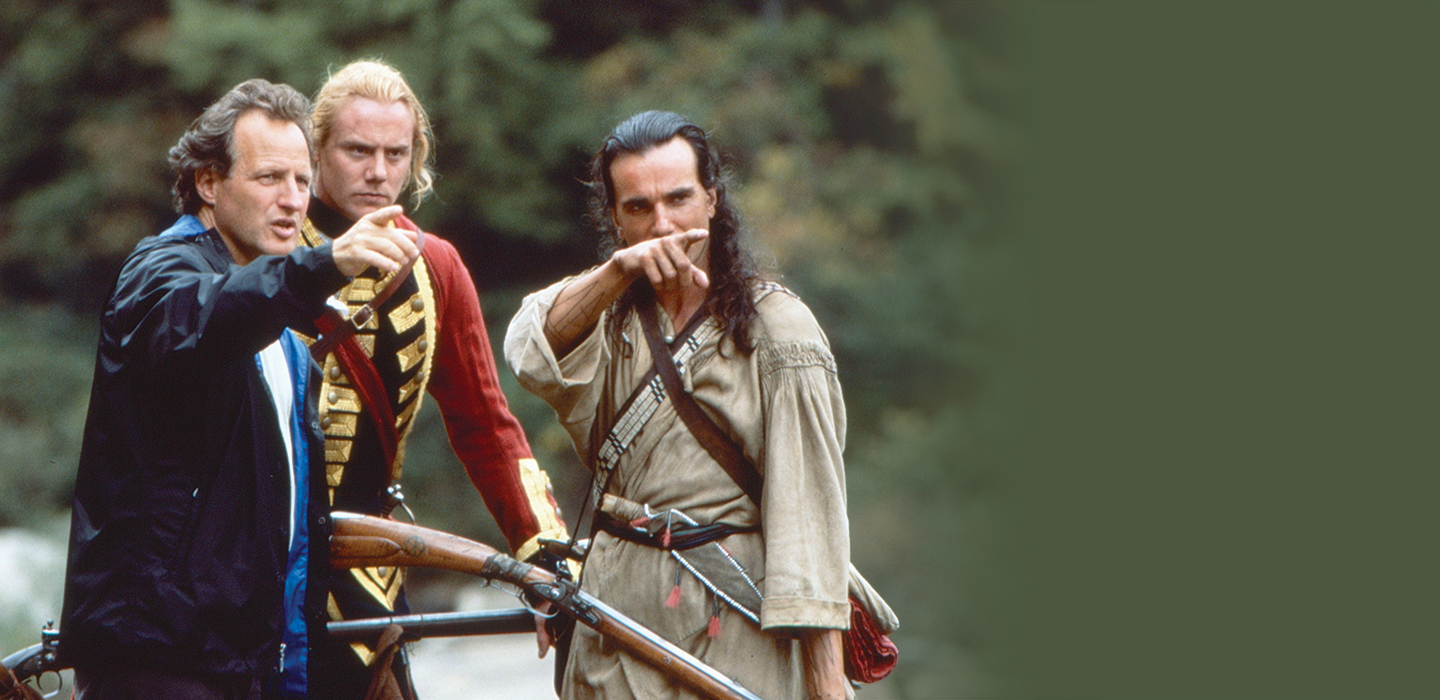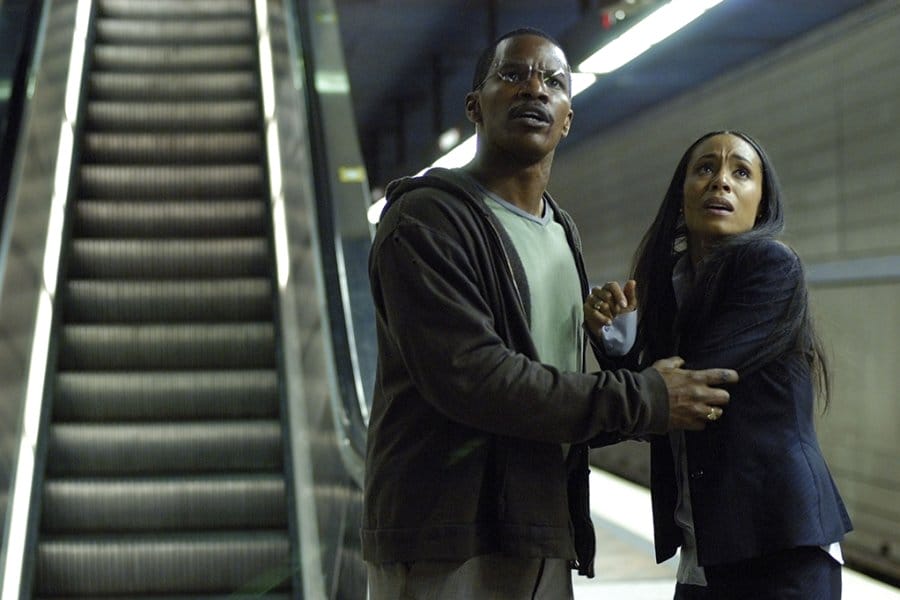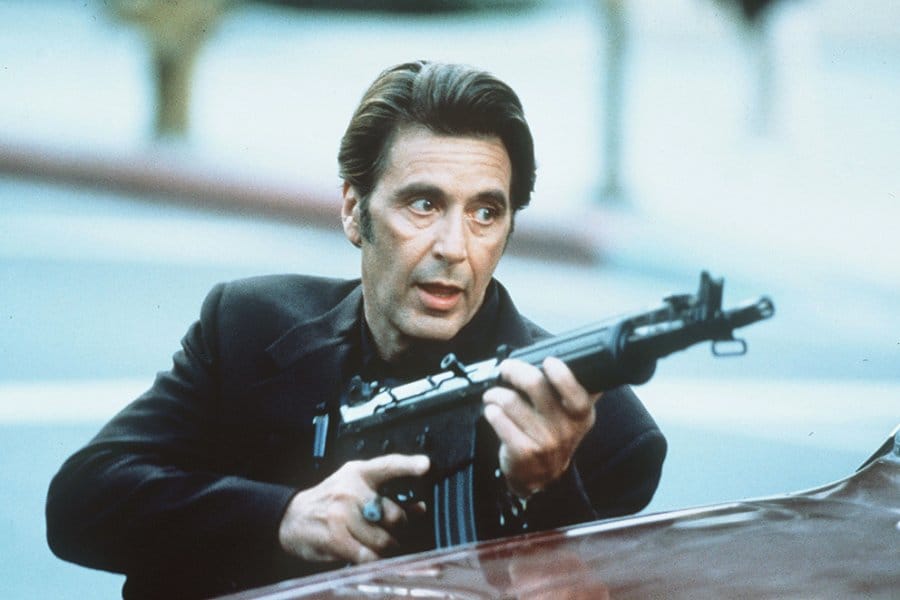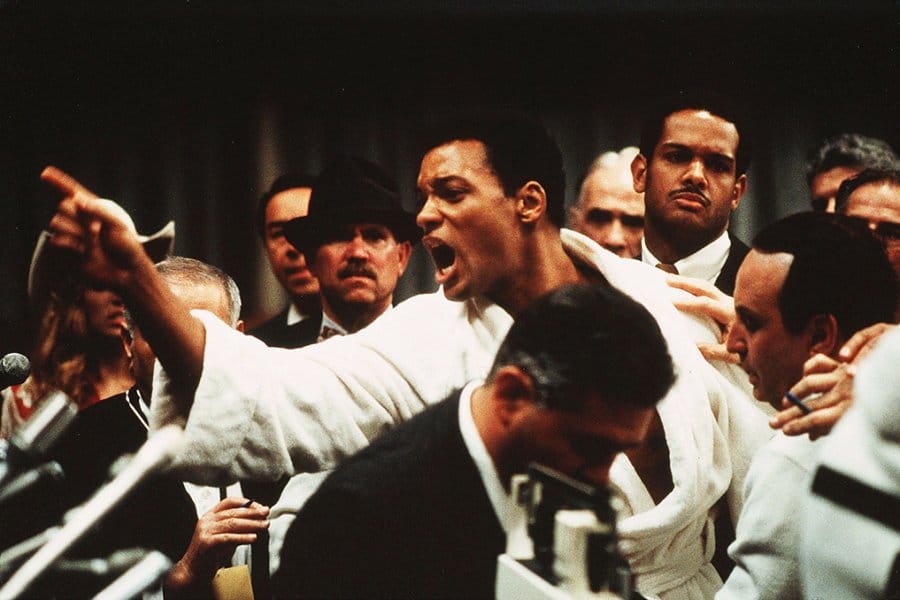
A Moviemaker on a Mission
With singular intensity, Michael Mann ’65 pits loners against the powers that be.
At the University of Wisconsin, Michael Mann ’65 obsessed over what to do with his life. He’d grown up on Chicago’s mean streets, toiling as a taxi driver and construction worker. That plus his UW English degree would qualify him to be … what, exactly?
Moviemaking hadn’t entered his mind. For a hard-working grocer’s son with little time for artistic pursuits, how could it? But the university offered its first courses in film history and theory in the early 1960s, giving Mann a look at German expressionism. The startling imagery rocked him back on his heels — and a screening of Stanley Kubrick’s Dr. Strangelove delivered the knockout punch. He marveled at a film that could connect with a mainstream audience while also communicating an auteur’s singular point of view.
Mann’s existential quest had come to an end. As he walked down Bascom Hill after one of these screenings, he knew he would make movies. Personal and popular ones, like Dr. Strangelove.
How many UW film students have had the same thought on the same hill? What distinguished Mann was his obsessiveness. With characteristic intensity, he tore through film school in London and wrote for the 1970s cop show Starsky and Hutch. He scored his first big success with 1979’s made-for-television prison movie The Jericho Mile, which introduced the world to a writer-director who would take no half measures in pursuit of a plot. Mann shot the picture on location in Folsom Prison and cast convicts in minor roles. The Jericho Mile won three Emmy awards and set the stage for Mann’s later cinematic triumphs, which stayed true to his long-ago vision on Bascom Hill.
Like the directors featured in his UW film classes, he developed a style of his own — one that might be called Mann-ly, with aggressive editing and audio to evoke male protagonists on the edge. You know you’re in the Michael Mann universe when a car speeds down a dark city street, neon reflecting on the windshield, synthesizer and electric guitars pulsating in time with the driver’s dangerously elevated heartbeat. In his frequent tales of cops versus criminals (Miami Vice, Thief, Heat, Public Enemies, Manhunter, Collateral, Blackhat), the gunfights can rattle your dental fillings, thanks to Mann’s penchant for using raw sound captured on set.
These scenes are hard to shrug off as superfluous violence. They involve you directly in the characters’ fateful conflicts with the powers that be. In the boxing epic Ali, Muhammad Ali (Will Smith) puts up his dukes against the entire U.S. government. In The Insider, a journalist (Al Pacino) defies both the tobacco industry and his own TV network. These are imperfect characters who strive for perfection in their work, whether a hit man (Tom Cruise in Collateral) or a hacker (Chris Hemsworth in Blackhat). They may yearn for a normal existence, but their obsessions usually consign them to life on the margins.
Mann will only take on projects that matter to him, so his filmography is relatively slim after a half-century’s worth of work. The 2023 release of the race-car saga Ferrari, his first production in eight years, is an occasion for revisiting a director who artfully combines mood, music, and moral concerns, rivaling his crime-focused peers Martin Scorsese and Francis Ford Coppola.
Here are five gems worth watching and rewatching. They’re sure to inspire future generations of moviemakers, just as that Madison screening of Dr. Strangelove inspired a young Michael Mann.
Thief (1981)
An independent-minded ex-con (James Caan) falls back on his safecracking skills for a final score — the one that will ensure a happily-ever-after ending with his new family. What could possibly go wrong when a local mob boss offers a helping hand? Displaying the mania for realism that would become his trademark, Mann employed professional criminals as consultants and even used their burglary tools for the spectacular break-in scenes.
Heat (1995)
In a cat-and-mouse game for the ages, Mann presents a master cop (Al Pacino) who’s not so different from the master criminal (Robert De Niro) he’s pursuing. Each is dedicated to his craft, and each pays a price for his professionalism. Healthy romantic relationships are forever out of reach for two alpha males focused on crimes, whether committing or solving them. Their only authentic relationship is with each other, evident in the classic diner scene where the antagonists meet for coffee and confessions.
The Insider (1999)
Like Ali, Ferrari, and The Last of the Mohicans, this fact-based drama finds Mann stretching beyond his favorite subject of perpetrators and police. But even in the confines of broadcast journalism, his scene-making is no less explosive. Journalist Lowell Bergman ’66 (Pacino, again at his very best) puts everything on the line to interview a tobacco-industry whistleblower (Russell Crowe) on 60 Minutes. As if tossed in a tempest, Mann’s whirling camera evokes the storm clouds in Bergman’s soul.
Ali (2001)
Mann puts conventional biopics to shame with his large-canvas portrait of Muhammad Ali (Will Smith), who taunts and transforms American culture in the fraught decade between 1964 and 1974. The director nimbly dodges the genre’s clichés by emphasizing offbeat moments rather than on-the-nose exposition. He uses every weapon in his filmmaking arsenal to bring the boxing matches to life, and his speedy, swirling, scrappy camera work matches his subject’s pugilistic style. But Mann’s greatest achievement in Ali — what distinguishes it in a crowded field of Ali books, articles, and documentaries — is going beyond the bluster to capture the champ’s complex inner life.
Collateral (2004)
While Heat is an epic clash of alpha males, this existentialist thriller pits alpha vs. beta — with surprising results. Vincent (Tom Cruise) is an assassin who arrives in Los Angeles with a hit list and a will to power reminiscent of Nietzsche’s superman. Max (Jamie Foxx) is an all-too-human cabbie who picks up Vincent and reluctantly takes the ride of his life through the city’s neon-lit underworld. Mann delivers all the cinematic pleasures he’s known for, including career-peak performances by top actors and stylish action sequences heavy on guns and gamesmanship. He also delivers something he’s not necessarily known for: humor, arising from the contrasts in this oddest of odd couples. •
Dean Robbins is a movie critic, coeditor of On Wisconsin, and fellow Dr. Strangelove fan.
Published in the Spring 2024 issue





Comments
Dana Regenbogen January 23, 2025
Insightful profile-I feel like I understand these movies better, along with the man who made them.